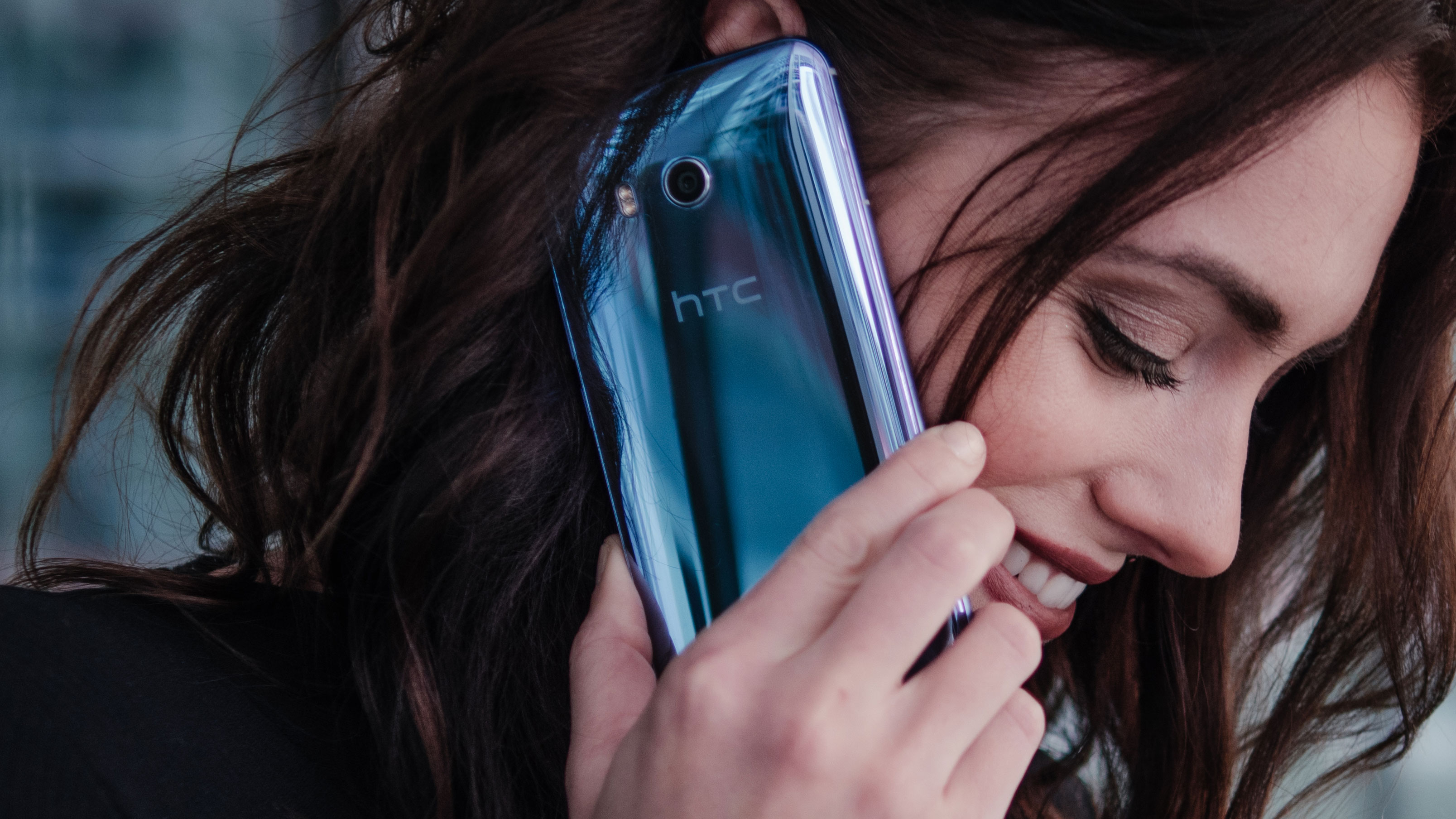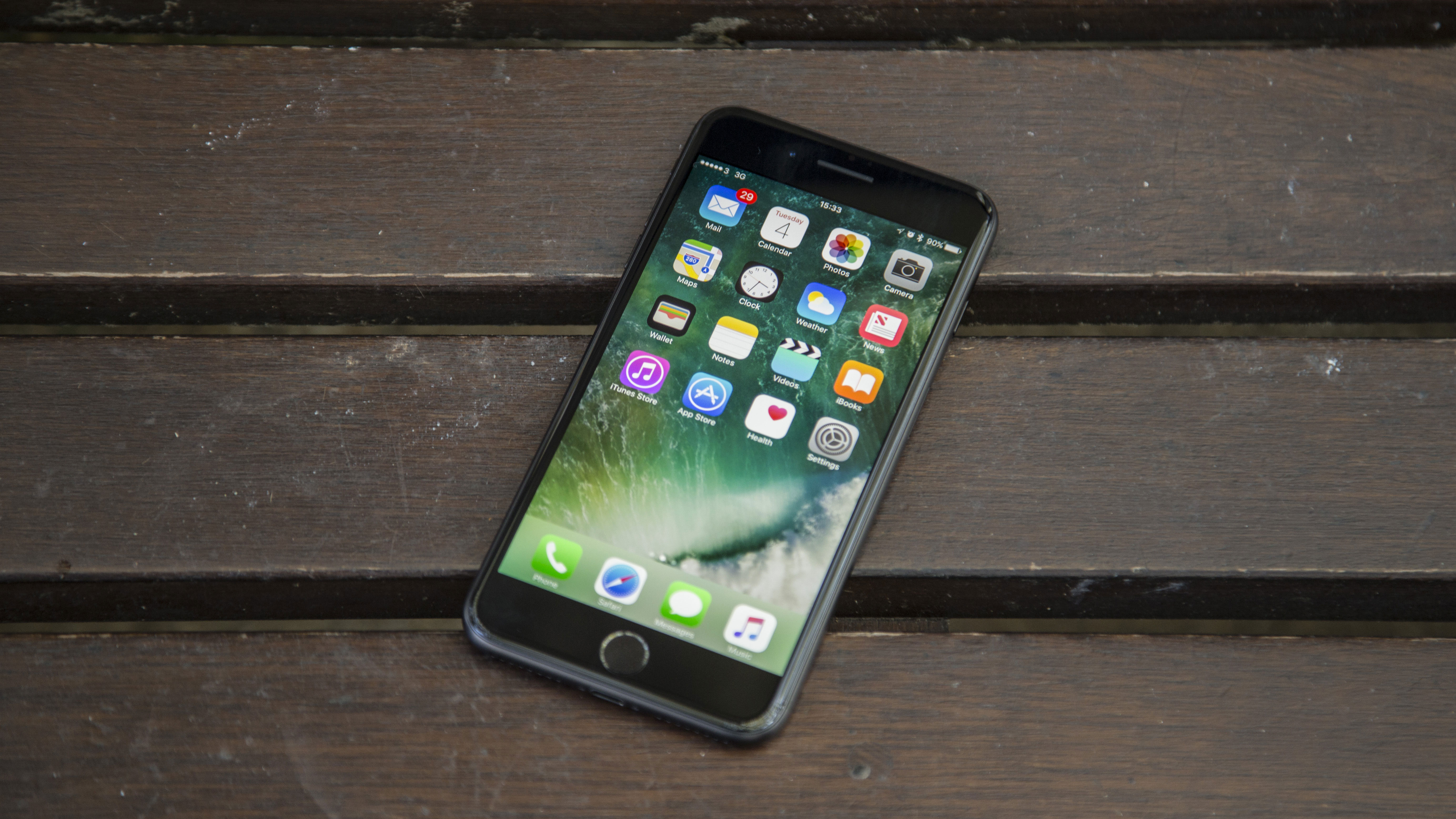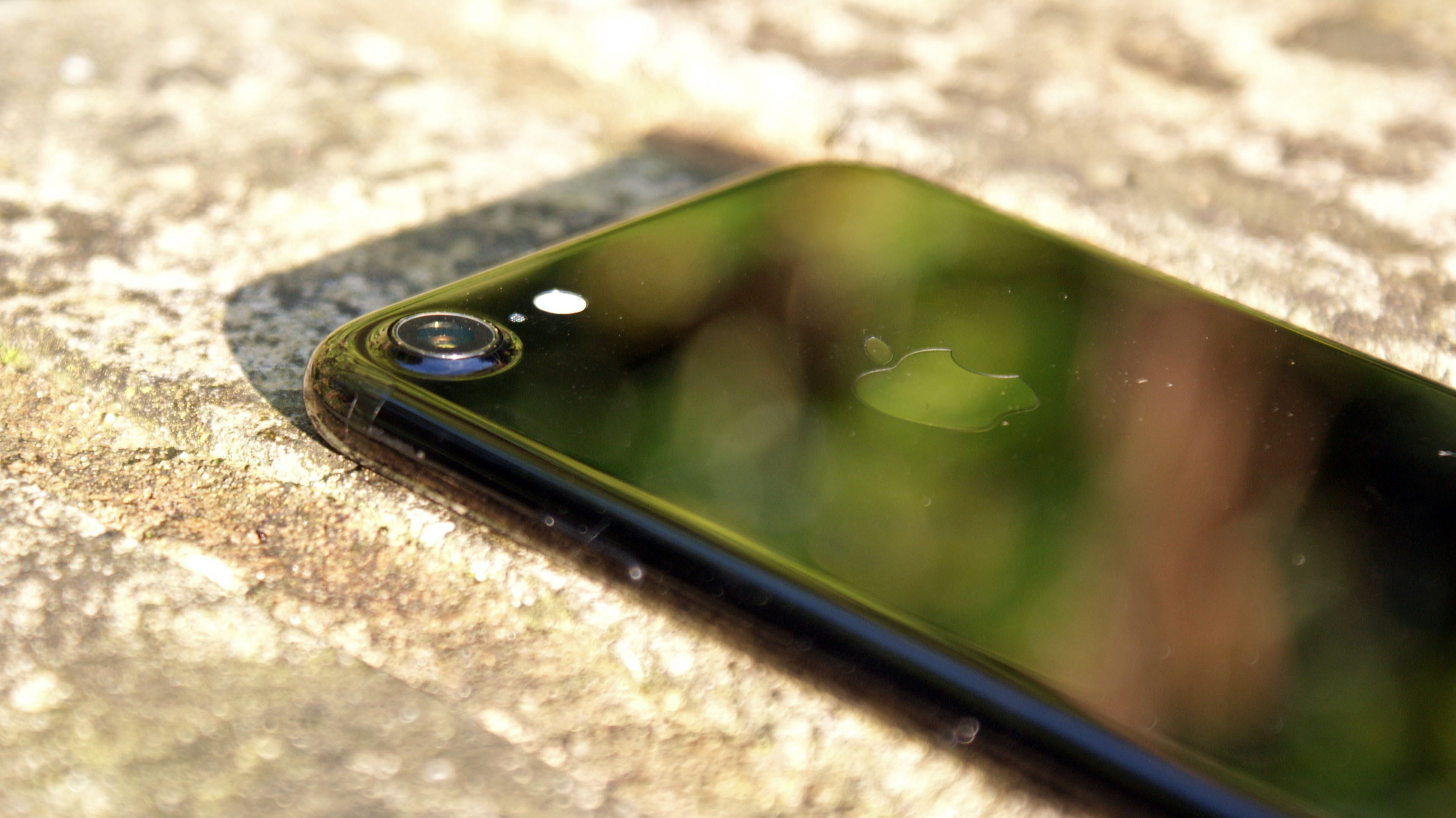HTC U11 vs iPhone 7: the squeezable smartphone takes on Apple's icon
Can HTC's latest match Apple's greatest?

Thought the HTC U Ultra was HTC’s main 2017 flagship? Think again. The HTC U11 is now here and at first glance it’s a far more compelling proposition, with top-end specs and innovative features that could make it a real alternative to the iPhone 7.
Apple’s phone is getting on a bit, but until the iPhone 8 arrives it’s still the company’s main flagship, and still impresses, with a sleek design and impeccable performance.
There’s a lot to like about both these phones, but they’re also very different. Here then, is how they compare.
- Read our in-depth hands on: HTC U11 review
HTC U11 vs iPhone 7: Design

These two phones are quite different from a design perspective, with the iPhone 7 sporting a metal shell while the HTC U11 is clad in HTC's Liquid Surface glass finish.
Unlike the U Ultra, the HTC U11 is IP67 certified dust and water resistant, meaning you can submerge it up to 1 meter in water for up to 30 minutes. That’s a handy feature, as while we wouldn’t recommend taking the phone swimming it should be able to survive the rain or a spilled drink.
But it’s a feature that the iPhone 7 can match, with that phone offering exactly the same level of resistance.
HTC U11 vs iPhone 7: Display

The HTC U11 has a 5.5-inch QHD screen, so it’s substantially larger and sharper than the 4.7-inch 750 x 1334 iPhone 7. Of course, that also means it’s a lot less finger-friendly, so you’ll likely need two hands to use it comfortably, while the iPhone 7 can be used with one.
Sign up for breaking news, reviews, opinion, top tech deals, and more.
Then again, the extra space of the HTC U11’s screen makes it more attractive as a portable video player and gaming machine.
And while the HTC U11’s screen is sharper, in day to day use you’re not likely to notice any lack of sharpness from the iPhone 7.
Plus, the iPhone 7’s display is high quality in other ways, with rich colors and a decent amount of brightness.
HTC U11 vs iPhone 7: OS and power

Obviously there’s a big difference here, in that the HTC U11 runs Android while the iPhone 7 runs iOS. And beyond that both phones have features that affect the way you interact with them.
In the HTC U11’s case that’s Edge Sense – the ability to operate aspects of the phone by squeezing the sides.
And the iPhone 7 has a pressure-sensitive feature of its own, albeit a slightly more conventional one, as with 3D Touch you can apply more pressure to the screen when tapping on something for a different result.
Neither of these phones are lacking when it comes to power. The HTC U11 uses the top-end Snapdragon 835 chipset and comes with either 4GB or 6GB of RAM, while the iPhone 7 uses Apple’s speedy A10 Fusion chipset and 2GB of RAM.
That RAM figure may sound troubling, but it doesn’t stop the iPhone 7 being one of the fastest phones around.
We’ll let you know exactly how good the HTC U11’s performance is in our full review, but we’re not expecting any major issues, and based on its specs it should be one of the smoothest performers yet.
Check out our hands on HTC U11 video review below
HTC U11 vs iPhone 7: Smart assistants
Both handsets come with smart assistants built in, but the HTC U11 offers two over the iPhone's one.
The iPhone 7 comes with Siri, an AI which has been refined and improved over a number of years and gives you the ability to ask your iPhone a range of questions and commands.
However, the HTC U11 comes with Google's Assistant and Amazon's Alexa. You can trigger them by saying "Okay Google" and "Alexa" respectively, or you can program the Edge Sense squeezable sides to launch the assistant of your choosing.
HTC U11 vs iPhone 7: Battery and camera

At 3,000mAh, the HTC U11’s battery isn’t especially large by flagship standards, though it is a match for the Samsung Galaxy S8’s, and that’s powering a bigger phone. It’s also far larger than the 1,960mAh one in the iPhone 7.
Apple’s phone – perhaps predictably – doesn’t have great battery life, often struggling even to last a day. It remains to be seen how good the HTC U11’s life is, as its battery is bigger, but so is its screen. We’ll let you know how it pans out in our full review.
We’ll also give the HTC U11’s camera a thorough test in our full review, but on paper it sounds promising, with a 12MP rear lens, an f/1.7 aperture and an autofocus time of under 0.3 seconds. It's also achieved the highest ever DXO Mark score, hitting 90 and beating the Google Pixel which scored 89.

The iPhone 7 also has a 12MP rear camera, but an f/1.8 aperture, meaning less light can hit the image sensor which could mean it won’t be as good for low-light photos as the HTC U11.
We emphasize ‘could’ though, as there’s a lot more to it than that and in practice the iPhone 7 can take great photos at most light levels, and benefits from point-and-shoot simplicity.
If you’re more into selfies the HTC U11 could appeal for its 16MP front-facing snapper, which has more than double the megapixels of the iPhone 7’s 7MP one, but then megapixels aren’t everything, and the iPhone 7’s front-facing camera is capable of taking reasonably sharp shots.
You can use the squeezable sides of the HTC U11 to launch the camera, and snap a selfie - which is handy if you're wearing gloves.
HTC U11 vs iPhone 7: Takeaway

Aside from the obvious operating system differences, the biggest difference between the iPhone 7 and HTC U11 is arguably the screen size, with the iPhone 7 being something of a compact phone compared to most, while the HTC U11 verges on phablet size.
They have different – but similarly premium – designs, and both phones have top-end specs. Some things, such as the battery life and camera performance of the HTC U11 remain to be seen, and while the former is unlikely to be any worse than the iPhone 7’s the latter could well be, as the iPhone 7 has one of the best smartphone snappers around.
We’ll let you know in our full HTC U11 review, but the iPhone 7 is a great phone and on paper the HTC U11 is too – just a much bigger, much more Android-infused one.
- Will the HTC U11 trouble our best phones list?
James is a freelance phones, tablets and wearables writer and sub-editor at TechRadar. He has a love for everything ‘smart’, from watches to lights, and can often be found arguing with AI assistants or drowning in the latest apps. James also contributes to 3G.co.uk, 4G.co.uk and 5G.co.uk and has written for T3, Digital Camera World, Clarity Media and others, with work on the web, in print and on TV.